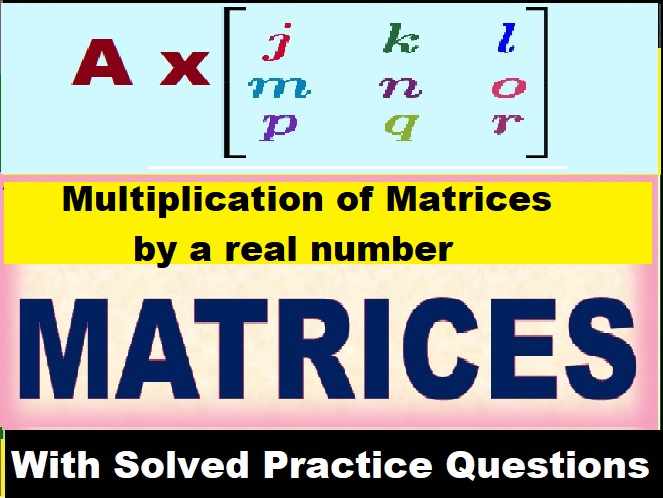Tithonus: Line by Line Explanation ISC Class-12 Poem Rhapsody . Stanza wise Explanations in very simple language. Student can grasp the all stanza easily to prepare the poem in effective way. Visit official website CISCE for detail information about ISC Board Class-12 English.

Tithonus: Line by Line Explanation ISC Class-12 Poem Rhapsody
| Board | ISC |
| Publications | Evergreen Publications |
| Subject | English |
| Class | 12 |
| Book Name | Rhapsody (A collection of ISC Poem ) |
| Chapter-12 | Tithonus |
| Writer | Alfred, Lord Tennyson |
| Topics | Line by Line Explanation |
Stanza Wise Explanations of Tithonus ISC Poem Rhapsody
The woods decay, .. .. …. …. dies the swan.
Explanation: Tennyson create a scene of dis balence in natural law and order . The repeatition “the woods decay and fall” describe the cyclic way of nature, in its endless cycle, is subject to decline and death. The weeping vapours express a layer of sorrow, as if the skies mourn the fate of all things that must eventually decay with time—represented both as rain falling to the ground and as the sorrows of life. a farmer’s labour, which is temporary and finally ends with him becoming part of the land he once cultivated. The swan’s death is particularly though it lives through many summers—all these are not immune to death. This stanza establishes the theme of mortality.
Me only cruel …. … …. halls of morn.
Explanation: Tithonus, describes himself as an casuality within the natural order. Like the woods, the vapour, man, and the swan, he can not decay and fall; Speaker is booned by the “cruel immortality” on demand. But for Tithonus, this boon immortality became cruel rather than a quick release from earth. The image of a “white-haired shadow” express his ghostly, existence. His comparison to a “dream” floating through “ever-silent spaces of the East” is telling with the liminality; he is caught between the tangible world and some other ethereal realm, a place marked by the “gleaming halls of morn,” suggestive of the unattainable beauty and renewal that dawn represents, forever out of his grasp.
Alas! for this gray .. … … other than a God!
Explanation: In this stanza he express a profound sense of loss. Tithonus mourns for himself, recalling his past vitality and glory. He was once a “grey shadow,” full of life and chosen by a goddess. His selection by a divine being made him feel akin to a god, inflating his sense of self to divine proportions. It’s a reaction that is lost now.
I ask’d thee, … … … how they give.
Explanation: The speaker Tithonus remembers the request he made to his beloved wife goddess Eos which is immortal. The granting of this wish is recounted with a sense of naivety on both their parts. Eos’s smile is likened to that of the careless generosity of the rich, who give without considering the consequences or the nature of the gift. This tells that foolishly human wishing to diviate from the crease of nature law for per
But thy strong Hours .. .. .. .. .. was, in ashes.
Explanation: The phrase “strong Hours,” seems to objectionl against the deform of its natural law. Speaker is not only simply living; but also being destroyed by time, even not allowed to die due to boon. There’s a sense of insult in the way as time treats him, leaving him “maim’d” and less . The facing of “immortal age beside immortal youth” is awful—Tithonus became old yet does not die, whereas his wife Eos (Aurora) remains young. His mourn that he can never achieve youth again.
Can thy love, … … …. meet for all?
Explanation: Speakers questions whether the love and beauty of the goddess can help for the pain and sorrow. Here The “silver star,” express to the planet Venus, for love, goddess Eos (Aurora) and is reflected in her tearful eyes, signifying her regret and sadness over Tithonus’s fate. His plea to be released from immortality is laden with the wisdom of hindsight; he now sees the value in the natural order of life and death from which he has been excluded. He ponders why anyone would want to deviate from the human experience, to go beyond the natural boundaries set for life
A soft air fans … … …. where I was born
Explanation: A modification in the atmosphere occurs as a gentle breeze provides a glimpse into past life of speaker. The “dark world” refers to the earth planet where he was born into. This stanza serves as a heart touching reminder of what he has lost his mortality.
Once more .. .. … … flakes of fire
Explanation: The dawn is express asl beauty. The “old mysterious glimmer” tells to the recurring beauty of Eos (Aurora) that speaker has witnessed countless times, yet now it only serves rules from the cycle of life and death. The “wild team” refers to the horses of Eos’s chariot, full of vitality and vigour,expressing the power and majesty of the natural world that Tithonus can only observe. The poetic image of the twilight being beaten “into flakes of fire” captures the violence and beauty of the dawn, as well as the pain it brings to Tithonus.
Lo! ever thus .. … … … on my cheek.
Explanation: Tithonus finds the silent beauty of Aurora that grows with each passing moment. Her departure without giving any solutions showing his helplessness . The tears on his cheek are a grief to their shared sorrow—a sorrow that is personal.
Why wilt .. … … recall their gifts.’
Explanation: The tears of Eos (Aurora) warn Tithonus; they seem to confirm a terrible ancient saying that even the gods can not postpone what they have booned. This proverb disturb him a lot, suggesting his immortality, and thus his suffering, is without last.. This confirm that common proverbs where god actions are irreversible and carry a great loss.
Ay me! ay me! … … sunny rings;
Explanation: Speaker expresses a sadness longing for the past, contrasting his former vitality with his current despair. The repeated word “Ay me! ay me!” is a signal of deep cry. He is sadly watching Eos (Aurora) with a heart full of life and eyes that could truly see and appreciate the beauty of her divine transformation. There’s a sense of dis belief as he questions whether he is the same person who once observed Eos’s hair changed from dim curls into rings illuminated by the sun.
Changed with thy .. … … wild and sweet,
Explanation: Eos’s transformation at dawn, his body reacting to the increasing light that made her divine presence . As he lay there, every kiss from Eos (Aurora) was refreshing and warm, compared to the gentle origin of spring represented by “half-opening buds of April.” There’s a sense of mystery and sweetness in the thinking .
Like that strange song … … … rose into towers.
IExplanation: In this stanza The memory of Eos’s tells him back further in time to the songs of Apollo, which is the god of music. He create Ilion his home land, appearing majestic and dream-like, rising from the mist, possibly think about the change before immorality boon.
Yet hold me …. … power to die,
Explanation: Tithonus request to Eos (Aurora) not to keep him bound to the region of the endless dawn, which she governs. There is a deep dis connect between his now-cold, mortal nature and her warm, immortal one. The ‘rosy shadows’ and lights of dawn, once sources of warmth and joy, now feel cold to him, a reminder of his unnatural state. He imagine the earthly fields and homes of mortals, who, in their ability to die, possess a happiness but he can not die.
And grassy barrows .. …. thy silver wheels.
Explanation: Speaker know even the dead, lying in their grass-covered graves, to be happier than he is. He requested Eos (Aurora) to let him join them in the earth, to end his suffering. He acknowledges her powerful vision, supposing she will witness his return to the earth upon his death. He imagines a world where she continues her daily renewal, her beauty unfading with each dawn, while he, not. The ‘silver wheels’ refer to her chariot, which brings the dawn each day—yet for him, it’s a cycle from which he deliberately seeks release from his endless grief.
— : End of Tithonus: Line by Line Explanation ISC Class-12 Rhapsody Stanza wise : —
Return to :– Rhapsody Workbook Answer of ISC Poem for Class 12 English
Thanks
Please, Share with your friend


